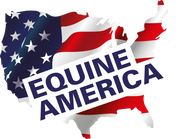Winter Health and Wellbeing
Winter Health and Wellbeing
Very cold weather can bring a series of challenges to keeping your horse or pony happy, healthy and warm!
Water intake : There are the obvious concerns about ensuring access to water in freezing conditions – troughs and buckets may need the ice breaking several times a day to ensure all horses and ponies have enough to drink. A lack of water at this time of year can be a major cause of colic in horses and ponies kept out at grass. Of course on really cold days, even buckets and automatic waterers in stables and barns can freeze, so check regularly!
When the weather permits, and at least every couple of days, taking rugs off is important to check overall health and condition.
Bodyweight and condition: whether the horse or pony has gained or lost condition. A small weight loss at this time of the year is not a cause for concern in most horses and ponies. Its is a natural occurrence for native breeds, and indeed is probably beneficial, helping to improve metabolic functions such as insulin sensitivity in breeds prone to Equine Metabolic Syndrome and similar conditions. Of course a significant or rapid weight loss should be investigated and discussed with your vet. If your horse or pony has gained in condition, you will need to review your feeding regime -are you providing too much concentrate feed for just weekend hacking? The diet of all horses and ponies should be based on forage, and despite the term “heating” usually being applied to concentrate feeds, its actually the consumption and digestion of forage which produces the most internal heat to keep your pony warm! So especially in snowy conditions, where access to pasture is affected, the best way to keep your horse or pony warm is to provide forage.
For most horses and ponies in no work, or light weekend work, forage will meet most of their nutrient requirements. However, most UK hay and pasture provides marginal levels of key minerals and vitamins, especially at this time of year, so the addition of a good broad- spectrum supplement such as Everyday Vitamins and Minerals mixed into a small handful of chaff will help to maintain health and wellbeing.
Skin and coat condition: wet and muddy conditions can damage skin and coat, and adding Supreme Omega Oil to a small chaff feed will provide essential fatty acids to keep skin healthy and supple, and able to withstand the rigours of the wet and mud. If skin does become damaged, Fungatrol Cream, applied once legs have been washed and thoroughly dried, will help to soothe and protect legs.
Contact the helpful friendly team at Equine America if you have any queries, or would like to discuss your individual horse or pony’s requirements.
 Skip to content
Skip to content

